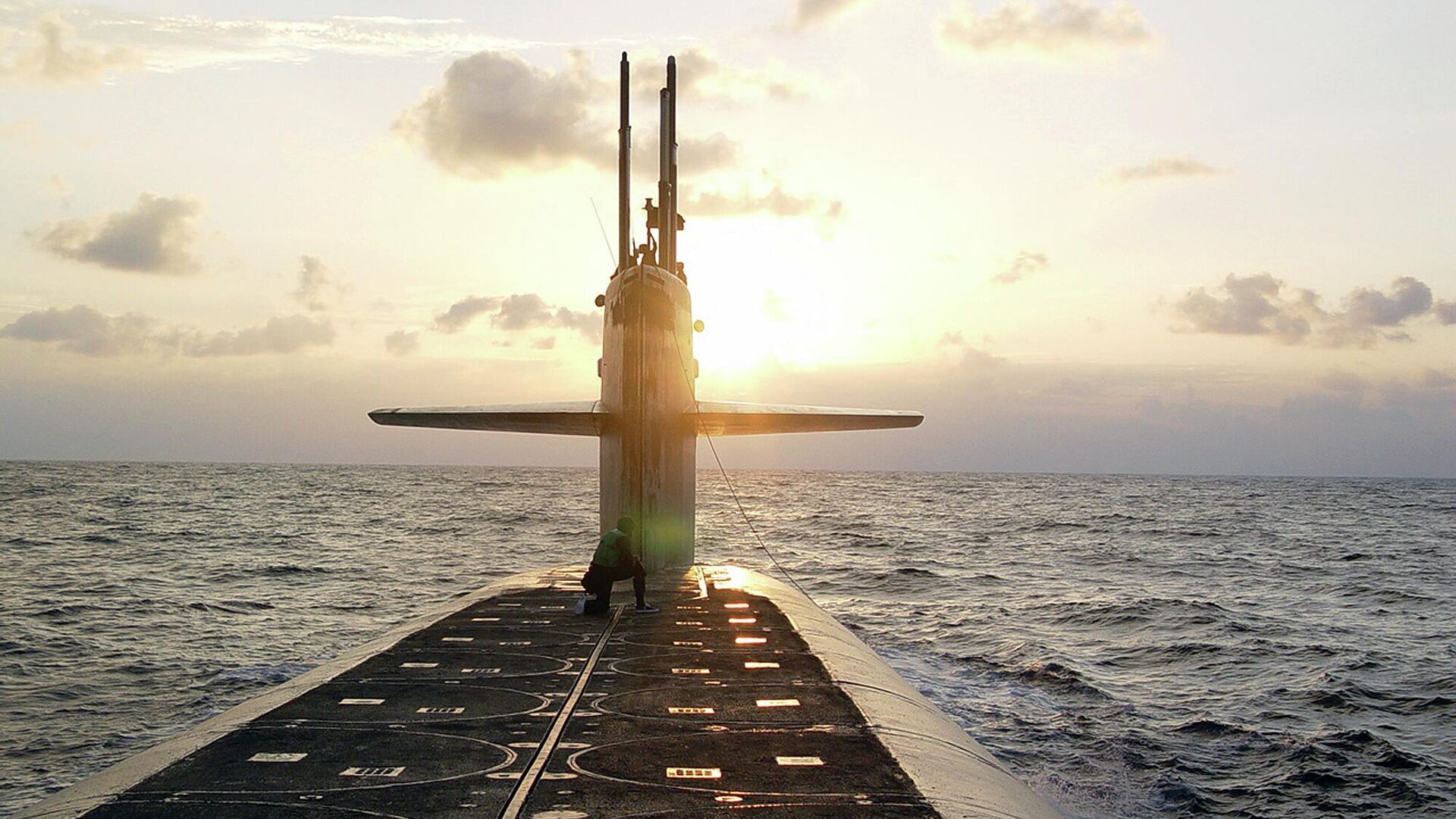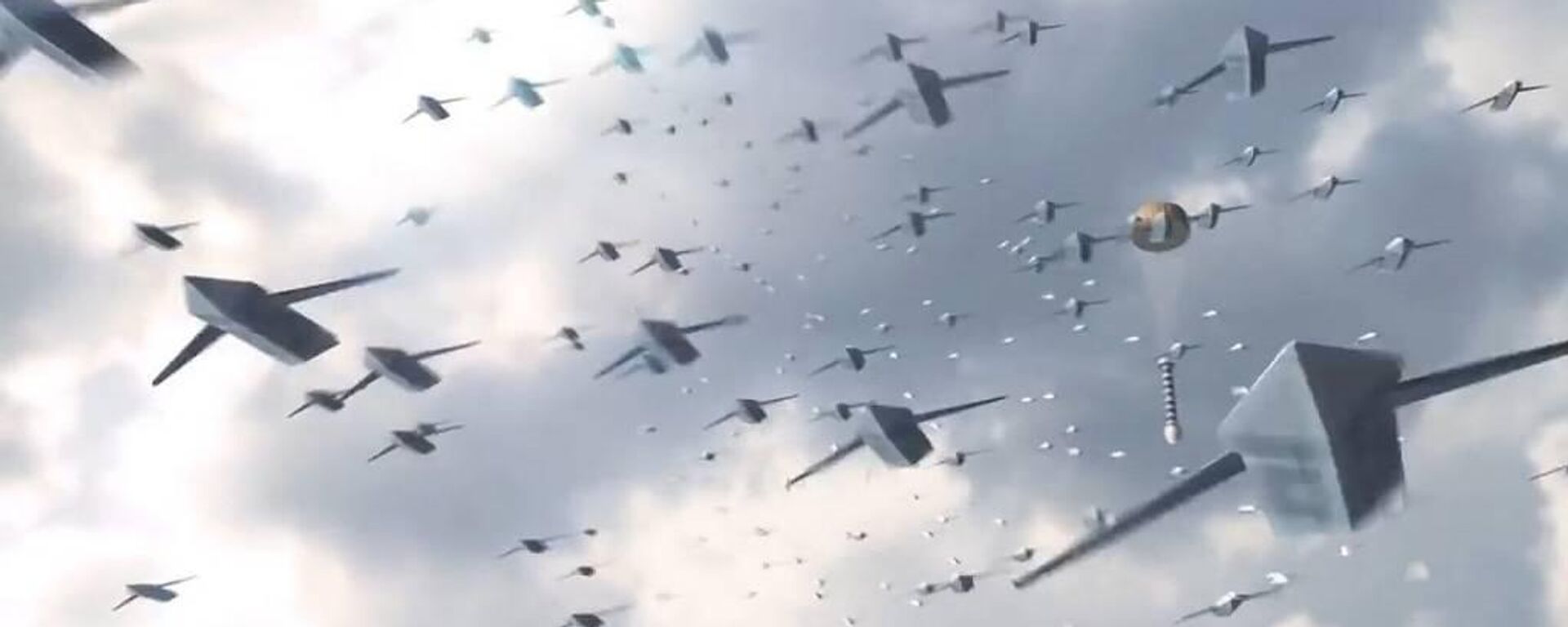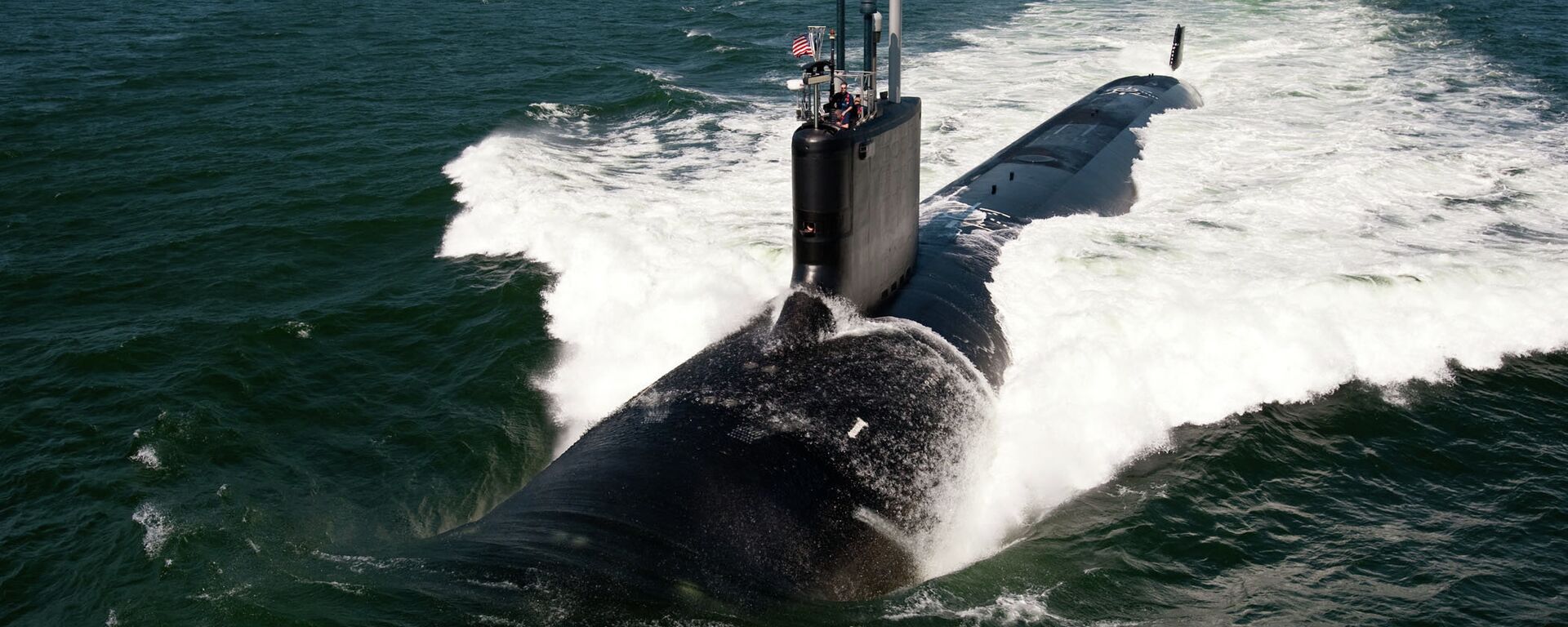https://sputnikglobe.com/20240319/nz-flirts-with-aukus-pillar-ii-amid-chinese-concerns-1117419798.html
NZ Flirts With AUKUS' 'Pillar II' Amid Chinese Concerns
NZ Flirts With AUKUS' 'Pillar II' Amid Chinese Concerns
Sputnik International
New Zealand’s Prime Minister Christopher Luxon has been invited for an official visit to China as Beijing closely watches Wellington’s next steps in relation to AUKUS.
2024-03-19T06:57+0000
2024-03-19T06:57+0000
2024-03-19T14:09+0000
aukus
new zealand
china
russia
wang yi
chinese foreign ministry
winston peters
sergey lavrov
asia-pacific region
asia
https://cdn1.img.sputnikglobe.com/img/07e6/08/0b/1099495217_0:0:2000:1125_1920x0_80_0_0_04a7eba3693142b900066507d93f305b.jpg
New Zealand’s Prime Minister Christopher Luxon has been invited for an official visit to China as Beijing closely watches Wellington’s next steps in relation to AUKUS.“The Prime Minister has been invited to visit China, and the Chinese leadership has been invited to visit New Zealand, but nothing has been confirmed,” a spokesman for Luxon was cited as saying.The invitation was extended after Luxon met with Chinese Foreign Minister Wang Yi on March 18, during his first official visit to the country since 2017.Washington-based architects of the trilateral security partnership between the United States, United Kingdom, and Australia appear increasingly eager to draw more countries into what is de facto an anti-Chinese alliance, with New Zealand appearing to be in their sights.It’s hardly surprising that China has been expressing concern about New Zealand - for whom Beijing has been the biggest two-way trading partner since 2017 - mulling joining AUKUS’ pillar two.During Wang Yi’s visit, the Chinese foreign minister met with his counterpart Winston Peters in Wellington ahead of travelling further on to Australia. Talks reportedly touched on security, trade, and a host of international issues. After the sit-down, Peters indicated that the matter of AUKUS had been touched on with Yi.At the same time, the increasing tilt towards the trilateral security alliance does not, in his opinion “risk in any way our most important trading relationship.""Countries are entitled to make up their minds about their defense interests or their security interests," Peters reiterated. He also echoed oft-repeated US “concerns” about "increased tensions in the South China Sea and Taiwan Strait."As for the Chinese foreign minister, he refrained from specifically mentioning AUKUS, saying that China and New Zealand “don’t have historical grievances or real disputes,” but share “many important consensuses and broad common interests.”In February, reports surfaced in Australian media that Canberra and Wellington were mulling over New Zealand's possible participation in the second pillar of the AUKUS partnership. Canberra pledged to send a working group to New Zealand in 2024 to brief the government on the development of the second pillar of AUKUS, the part of the partnership involving the development of advanced technologies, the RNZ broadcaster reported. Against the backdrop of these reports, the foreign and defense ministers of the two countries held a meeting in Melbourne under the first Australia-New Zealand Foreign and Defense Ministerial Consultations (ANZMIN 2+2). They agreed to increase integration between the Australian and New Zealand armed forces, including "exchanges of senior military officers and increased participation in warfighting exercises," according to a statement. A joint statement issued by Australia and New Zealand at the time insisted that AUKUS was making “a positive contribution toward maintaining peace, security and prosperity in the Indo-Pacific.”In response, the Chinese Embassy in Wellington argued that AUKUS ran counter to “the common interests of regional countries pursuing peace, stability and common security.” After the October 2023 election in New Zealand brought a new three-way coalition led by the National Party’s Christopher Luxon to power, the comments coming out of Wellington have become increasingly more hawkish. Last December, Judith Collins, New Zealand's defense minister, said failure to join AUKUS in some form was “a real opportunity lost by the previous government.” Luxon also stated that “we’re interested in exploring Pillar II, particularly in AUKUS, and the new technologies and the opportunities that may mean for New Zealand.”China, Russia, North Korea, and several Asia-Pacific nations have repeatedly expressed serious reservations over the AUKUS pact, warning against a renewed arms race in the region. Chinese Foreign Ministry spokeswoman Mao Ning slammed the agreement for raising tensions in the Asia-Pacific and condemned Washington for "pursuing its own interests and adhering to a zero-sum game mindset." AUKUS could turn the Pacific into "an ocean of storms," Chinese Foreign Ministry spokesperson Wang Wenbin warned on June 6, 2023.Russia's Foreign Minister Sergey Lavrov has stressed that "the Anglo-Saxon world, with the creation of bloc structures like AUKUS... is making a serious bid for confrontation for many years to come."The 10 nations of ASEAN have been highlighting the safety issues with the transportation and use of highly enriched uranium and the risk of it being diverted to weapons programs. Indonesia and Malaysia both raised major concerns about the sharing of nuclear technology for military purposes in a working paper for the UN nuclear non-proliferation review conference in New York in August 2022. Indonesia argued that the lack of safeguards “could be exploited to provide a shield for diversion of that material to [a] nuclear weapons program.”Rafael Grossi, the director general of the IAEA, the UN nuclear watchdog, also admitted that the AUKUS submarines deal would be “very tricky” for nuclear inspectors, with vessels fuelled by highly enriched uranium at sea for months at a time.
https://sputnikglobe.com/20230528/is-aukus-weaponizing-drone-swarms-against-china-1110752233.html
https://sputnikglobe.com/20230607/why-aukus-nuclear-sub-deal-will-stir-up-pacific-into-ocean-of-storms-1110982350.html
new zealand
china
russia
Sputnik International
feedback@sputniknews.com
+74956456601
MIA „Rossiya Segodnya“
2024
News
en_EN
Sputnik International
feedback@sputniknews.com
+74956456601
MIA „Rossiya Segodnya“
Sputnik International
feedback@sputniknews.com
+74956456601
MIA „Rossiya Segodnya“
australia, nuclear materials, non-proliferation treaty, iaea, aukus nuclear submarine deal, australia gets nuclear materials, non-nuclear asean, china aukus non-proliferation concerns, ssn aukus, us-australia technology sharing, nuclear technology, arms race in indo-pacific, nuclear arms race in indo-pacific, aukus, a trilateral pact between australia, the us and the uk,
australia, nuclear materials, non-proliferation treaty, iaea, aukus nuclear submarine deal, australia gets nuclear materials, non-nuclear asean, china aukus non-proliferation concerns, ssn aukus, us-australia technology sharing, nuclear technology, arms race in indo-pacific, nuclear arms race in indo-pacific, aukus, a trilateral pact between australia, the us and the uk,
NZ Flirts With AUKUS' 'Pillar II' Amid Chinese Concerns
06:57 GMT 19.03.2024 (Updated: 14:09 GMT 19.03.2024) New Zealand was displaying signs of increased interest in joining the second - non-nuclear - pillar of the trilateral AUKUS security partnership, reports suggested earlier in the year. Furthermore, the new Wellington government appeared to be increasingly echoing US-concocted “concerns” over China's growing influence in the Pacific.
New Zealand’s Prime Minister Christopher Luxon has been invited for an official visit to China as Beijing closely watches Wellington’s next steps
in relation to AUKUS.
“The Prime Minister has been invited to visit China, and the Chinese leadership has been invited to visit New Zealand, but nothing has been confirmed,” a spokesman for Luxon was cited as saying.
The invitation was extended after Luxon met with Chinese Foreign Minister Wang Yi on March 18, during his first official visit to the country since 2017.
Washington-based architects of the
trilateral security partnership between the United States, United Kingdom, and Australia appear increasingly eager to draw more countries into what is de facto
an anti-Chinese alliance, with New Zealand appearing to be in their sights.
It’s hardly surprising that China has been expressing concern about New Zealand - for whom Beijing has been the biggest two-way trading partner since 2017 - mulling joining AUKUS’ pillar two.
New Zealand has a nuclear-free policy and is only interested in pillar two of the pact, which relates to cooperation in strategically sensitive areas, including quantum computing and artificial intelligence.
During Wang Yi’s visit, the Chinese foreign minister met with his counterpart Winston Peters in Wellington ahead of travelling further on to Australia. Talks reportedly touched on security, trade, and a host of international issues. After the sit-down, Peters indicated that the matter of AUKUS had been touched on with Yi.
"He did raise AUKUS with me and I pointed out the right of countries to organize their defense arrangements… It was just a matter of making it very certain that he understood that we did not have imaginary concerns about long term security," Peters told the media.
At the same time, the increasing tilt towards the trilateral security alliance does not, in his opinion “risk in any way our most important trading relationship."
"Countries are entitled to make up their minds about their defense interests or their security interests," Peters reiterated. He also echoed oft-repeated US “concerns” about "increased tensions in the South China Sea and Taiwan Strait."
As for the Chinese foreign minister, he refrained from specifically mentioning
AUKUS, saying that China and New Zealand “
don’t have historical grievances or real disputes,” but share “
many important consensuses and broad common interests.”
The trilateral security partnership, AUKUS, was announced on September 15, 2021. The first initiative under the pact involves the US and UK transferring nuclear technology to Australia to build nuclear-powered submarines domestically. The second "pillar" involves the sharing of a range of technologies, including underwater robotics, quantum electronics, cybersecurity and electronic warfare capabilities, hypersonic weapons, and defense mechanisms against them.
In February, reports surfaced in Australian media that Canberra and Wellington were mulling over New Zealand's possible participation in the second pillar of the AUKUS partnership. Canberra pledged to send a working group to New Zealand in 2024 to brief the government on the
development of the second pillar of AUKUS, the part of the partnership involving the development of advanced technologies, the RNZ broadcaster reported.
Against the backdrop of these reports, the foreign and defense ministers of the two countries held a meeting in Melbourne under the first Australia-New Zealand Foreign and Defense Ministerial Consultations (ANZMIN 2+2). They agreed to increase integration between the Australian and
New Zealand armed forces, including "
exchanges of senior military officers and increased participation in warfighting exercises," according to a statement. A joint statement issued by Australia and New Zealand at the time insisted that AUKUS was making “
a positive contribution toward maintaining peace, security and prosperity in the Indo-Pacific.”
In response, the Chinese Embassy in Wellington argued that AUKUS ran counter to “the common interests of regional countries pursuing peace, stability and common security.”
After the October 2023 election in New Zealand brought a new three-way coalition led by the National Party’s Christopher Luxon to power, the comments coming out of Wellington have become increasingly more hawkish. Last December, Judith Collins, New Zealand's defense minister, said failure to join AUKUS in some form was “a real opportunity lost by the previous government.” Luxon also stated that “we’re interested in exploring Pillar II, particularly in AUKUS, and the new technologies and the opportunities that may mean for New Zealand.”
China, Russia, North Korea, and several Asia-Pacific nations have repeatedly expressed serious reservations over the AUKUS pact, warning against a renewed arms race in the region. Chinese Foreign Ministry spokeswoman Mao Ning slammed the agreement for
raising tensions in the Asia-Pacific and condemned Washington for
"pursuing its own interests and adhering to a zero-sum game mindset." AUKUS could turn the Pacific into
"an ocean of storms," Chinese Foreign Ministry spokesperson Wang Wenbin warned on June 6, 2023.
Russia's Foreign Minister Sergey Lavrov has stressed that "the Anglo-Saxon world, with the creation of bloc structures like AUKUS... is making a serious bid for confrontation for many years to come."
The 10 nations of ASEAN have been highlighting the safety issues with the transportation and use of highly enriched uranium and the risk of it being diverted to weapons programs.
Indonesia and Malaysia both raised major concerns about the sharing of nuclear technology for military purposes in a working paper for the UN nuclear non-proliferation review conference in New York in August 2022. Indonesia argued that the lack of safeguards “could be exploited to provide a shield for diversion of that material to [a] nuclear weapons program.”
Rafael Grossi, the director general of the IAEA, the UN nuclear watchdog, also admitted that the AUKUS submarines deal would be “very tricky” for nuclear inspectors, with vessels fuelled by highly enriched uranium at sea for months at a time.




